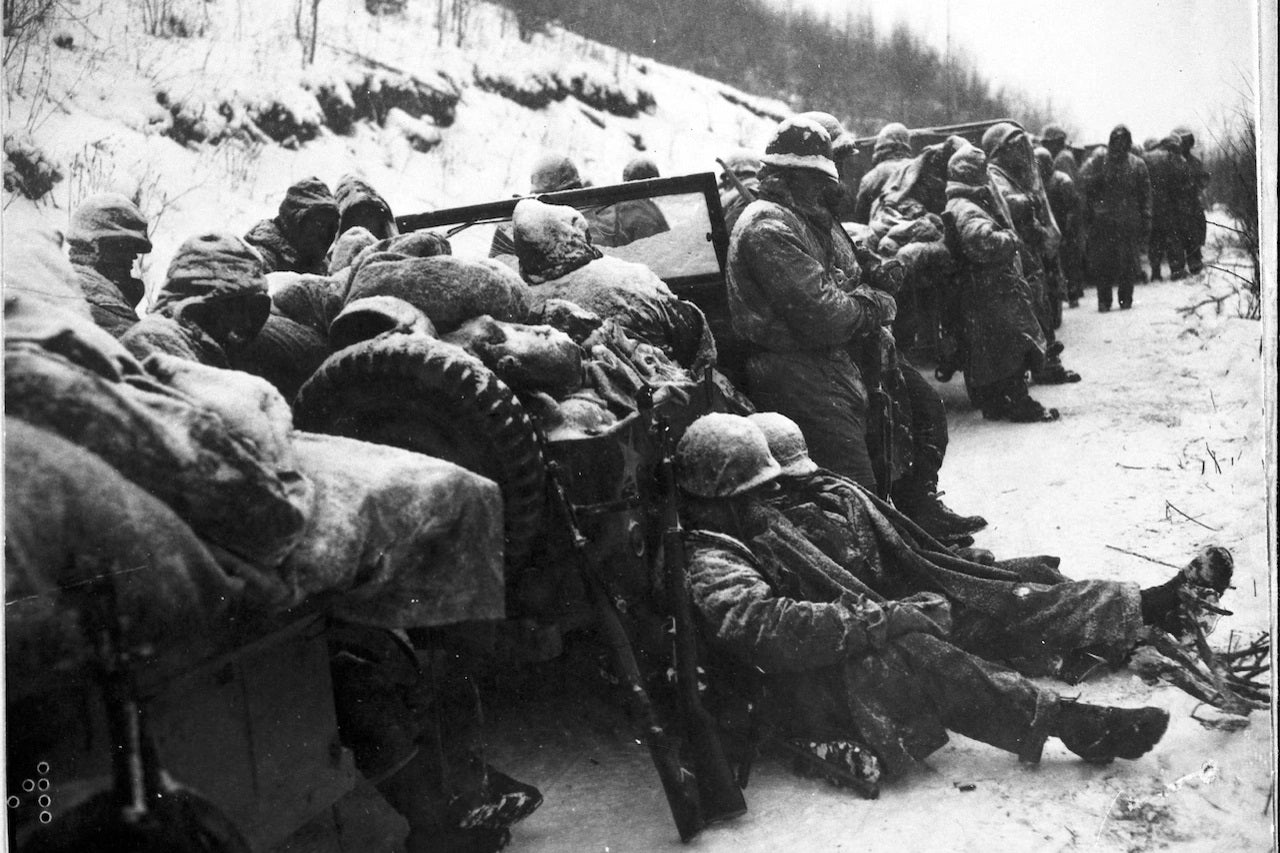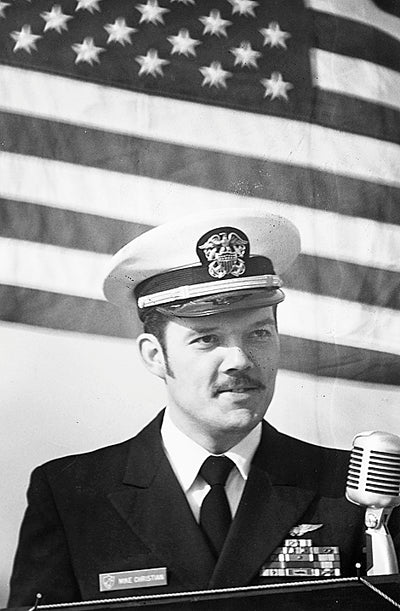Remembering Chosin

Today we remember Medal of Honor Recipient Colonel William E. Barber and all those who fought alongside him in the Battle of Chosin Reservoir, 71 years ago today...

(Colonel William E. Barber, Photo credit: National Archives)
Colonel Barber was born November 30, 1919, in Dehart, Kentucky. He grew up on a farm and completed High School in Morgan County, Kentucky, before attended Morehead State Teachers College. In 1940 he enlisted in the Marine Corps as the war in Europe was ramping up. When the U.S. joined World War II, he was sent to the Pacific. Barber served in the Battle of Iwo Jima, where he was shot rescuing two Marines after he replaced his wounded commander. His actions on Iwo Jima earned him the Silver Star and Purple Heart Medal. Barber survived the war and remained in the Marines. When war broke out in Korea a few years later, he'd reached the rank of captain and was the commanding officer of Company F, 2nd Battalion, 7th Marines in the 1st Marine Division.
The nearly three weeks long Battle of Chosin Reservoir began when 120,000 Chinese troops infiltrated northeast North Korea and attacked United Nations troops, 30,000 men from the U.S. 1st Marine Division, two U.S. Army battalions and some allied troops who were chasing what remained of the North Korean Army north around the reservoir.
The U.N.'s main supply route went through the Toktong Pass, a narrow, steep three-mile mountain road below the reservoir. Barber and his 240 man company were tasked with defending the pass. On Nov. 28, 1950. The Chinese attacked in the early morning, surrounding the Marines, isolating them from the rest of their division, and blocking their escape route. Despite the siege, Barber encouraged his men to hold their positions and was able to call in air strikes and airdrops for critically needed ammunition, medication and food.
On the second day of fighting, orders were radioed to Barber for his company to fight its way back east to be relieved. "He chose to risk loss of his command rather than sacrifice more men," the Medal of Honor citation said. Barber requested permission for the company to stand its ground. He didn't want to lose more men, abandon those who were too wounded to walk, or lose the critical Pass. His request was granted.
Barber suffered two injuries during the fighting, For five days and six nights, Chinese troops launched relentless attacks, but Company F held their ground.
By Dec. 2, the 5th and 7th Marine Regiments had fought their way free and were able to link up with Barber's men, who had held their position against staggering attacks. When they were finally relieved, only 82 of Barber's men were able to walk away under their own power.
After the battle, Barber was hospitalized for three months. Eventually the U.S. reported more than 12,000 casualties, including more than 3,000 dead. Chinese forces were decimated with an estimated 50,000 lost.
Barber is one of 17 men who earned the Medal of Honor for his actions at Chosin. Barber went on to serve as a psyops officer in Vietnam before retiring as a colonel in 1970 and becoming a high school history teacher. Barber died April 19, 2002, at his home in Irvine, California. He was buried with full military honors in Arlington National Cemetery.

(Marines of the 5th and 7th regiments, who hurled back a surprise onslaught by three Chinese divisions, wait to withdraw from the Chosin Reservoir area circa December 1950. Photo credit: National Archives)
Colonel Barber's Medal of Honor citation reads: "For conspicuous gallantry and intrepidity at the risk of his life above and beyond the call of duty as commanding officer of Company F, Second Battalion, Seventh Marines, First Marine Division (Reinforced), in action against enemy aggressor forces in Korea from 28 November to 2 December 1950. Assigned to defend a three-mile mountain pass along the division's main supply line and commanding the only route of approach in the march from Yudam-ni to Hagaru-ri, Captain Barber took position with his battle-weary troops, and, before nightfall, had dug in and set up a defense along the frozen, snow-covered hillside. When a force of estimated regimental strength savagely attacked during the night, inflicting heavy casualties and finally surrounding his position following a bitterly fought seven-hour conflict, Captain Barber, after repulsing the enemy, gave assurance that he could hold if supplied by airdrops and requested permission to stand fast when orders were received by radio to fight his way back to a relieving force after two reinforcing units had been driven back under fierce resistance in their attempts to reach the isolated troops. Aware that leaving the position would sever contact with the 8,000 marines trapped at Yudam-ni and jeopardize their chances of joining the 3,000 more awaiting their arrival in Hagaru-ri for the continued drive to the sea, he chose to risk loss of his command rather than sacrifice more men if the enemy seized control and forced a renewed battle to regain the position, or abandon his many wounded who were unable to walk. Although severely wounded in the leg in the early morning of the 29th, Captain Barber continued to maintain personal control, often moving up and down the lines on a stretcher to direct the defense and consistently encouraging and inspiring his men to supreme efforts despite the staggering opposition. Waging desperate battle throughout five days and six nights of repeated onslaughts launched by the fanatical aggressors, he and his heroic command accounted for approximately 1,000 enemy dead in this epic stand in bitter subzero weather, and when the company was relieved, only 82 of his original 220 men were able to walk away from the position so valiantly defended against insuperable odds. His profound faith and courage, great personal valor, and unwavering fortitude were decisive factors in the successful withdrawal of the division from the deathtrap in the Chosin Reservoir sector and reflect the highest credit upon Captain Barber, his intrepid officers and men, and the United States Naval Service."



